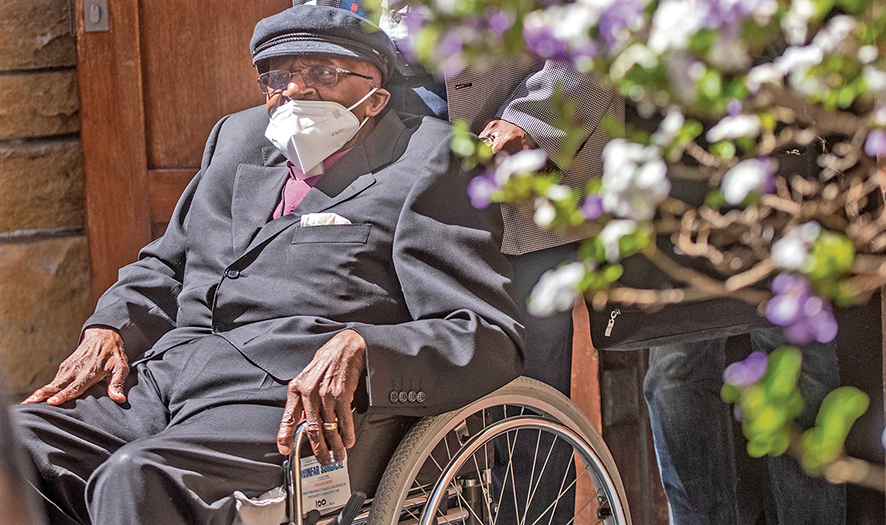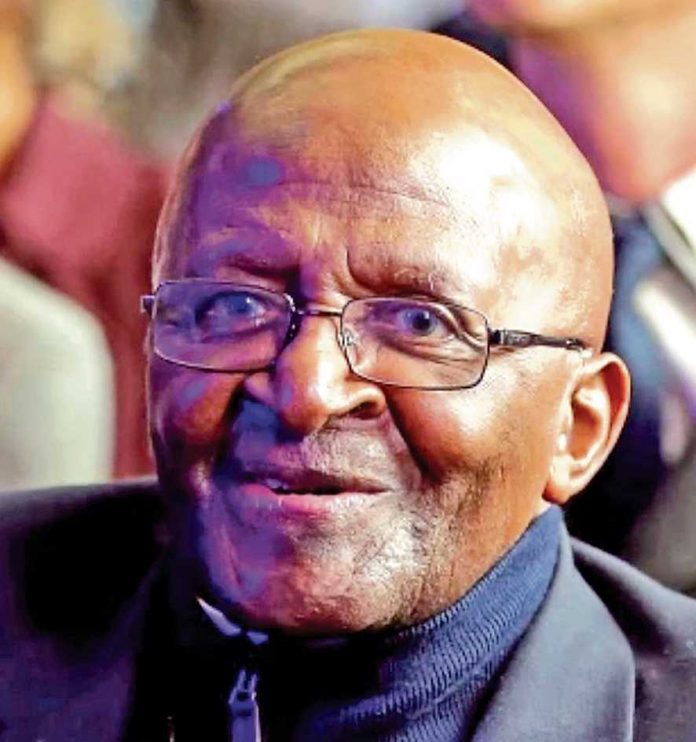Johannesburg- Together with two German colleagues, Dietrich Werner and Rudolph Hinz, I, Sarojini Nadar and Vicentia Kgabe oversaw the launch of a co-edited volume, Ecumenical Encounters with Desmond Tutu, last Monday.
The book comprises essays, poems and prayers by writers from every conceivable corner of the globe – mostly writers who have directly encountered the South African force of nature called Mpilo Desmond Tutu.
Ours is part of a global effort to tease out the veritable legacy of the 90-year-old Tutu for our generation.
The Arch, as Tutu is fondly called, was never the leader of the biggest church in South Africa. He is no Engenas Lekganyane, Isaiah Shembe, Enoch Mgijima, Christina Mokutuli Nku, Nontentha Nkwenkwe, or Frederick Samuel Modise. Not even remotely.
Nor would it be reasonable to force Tutu into a simulated “beauty contest” about priestly charm and congregation size.
[membership level=”1″]Tutu’s legacy will not be found in notions of the mega-church and the mega-bucks they raise for the glory of the big men of God who establish such churches. His legacy does not lie in such metrics. Nothing was further from the mind of the young Tutu than priesthood.
It was not even his second choice.
He wanted to study medicine.
Since his parents couldn’t afford the fees, Desmond, like his old man, Zacharia Zelilo Tutu, became a teacher. From 1955 to 1958 he taught at Johannesburg Bantu and Munsieville high schools.
At that time, the apartheid government was repurposing black education into a factory for the production of servants for white people. In protest, Tutu enrolled for the priesthood at St Peter’s Theological College.
And yet, in the 50-year period between 1960 when Tutu has ordained an Anglican deacon, and 2010 when he announced his retirement, few church leaders have impacted their fellow human beings more. For more than half a century, the impact of the diminutive son of Makoeteng, the erstwhile township of Klerksdorp, has reverberated across the world. But Tutu was not always admired and loved by everyone.
The apartheid regime, whose fiercest critic he became, hated his guts. Therein lies the legacy of Tutu – the legacy of fearless truth-telling and ethical leadership. He tells of many a hilarious Freudian slip, where he would be mistaken for Bishop
Muzorewa of Rhodesia.
This was not because of their facial similarities, but rather because, in those days, people would rather have the “moderate” Abel Muzorewa than the “communist” Desmond Tutu.
“God is on our side! Join the winning side,” he would taunt the police and the army who were a constant and menacing presence in many of the mass funerals and rallies he addressed. Nor has Tutu been silent on the injustice within the church itself.
He championed the cause of women’s ordination and called for the admission of LGBQTIA+ persons as full members and as priests. He even threatened that he would walk out of heaven should God be found to be homophobic.
This shook the foundations of the racist, patriarchal and hetero-normative church. That too is his legacy.
“I used to be an Anglican until I put Tu+Tu together” screamed some graffiti on a wall not far from Tutu’s home shortly after his election as the archbishop. Only last month, the mural of Tutu was defaced with profanities in Cape Town.

He has been criticised and viciously attacked both during and after the apartheid era. And he too, has criticised both the apartheid regime and the democratic government.
As he has become frail and less able to debate with his critics, the shortcomings of the Truth and Reconciliation Commission and the failures of the “rainbow nation” have increasingly been laid at his feet.
In many of these unfair and sometimes uninformed criticisms, there is a backhanded and inadvertent salute to the legacy of Tutu’s tenacity, always believing that in the end, good triumphs over evil.
Tutu does not know how to assemble an AK-47. No political ambition was ever detected in him. In any case, as Mark Anthony once remarked, (political) ambition is made of sterner stuff. Tutu feels too deeply and cries too easily.
The real passion of Tutu has to do with the grossly underestimated qualities of compassion and forgiveness. All the powerful algorithms in the world will not replace our need for empathy, kindness and ubuntu.
This is precisely what Tutu has taught us as humanity continues to flirt with hatefulness, violence and environmental self-destruction.

Follow SundayWorldZA on Twitter and @sundayworldza on Instagram, or like our Facebook Page, Sunday World, by clicking here for the latest breaking news in South Africa. To Subscribe to Sunday World, click here.
Sunday World
[/membership] [pmpro_signup submit_button=”Register” level=”1″ login=”1″ redirect=”referrer” short=”false” title=”Register to view Exclusive Content” short=”true” custom_fields=”true”


